Photographs: Rediff Archives Business Standard
Ministers are forbidden to have any connections with businesses that are related to the work they conduct for the government. But this rule is flouted regularly.
The Central Bureau of Investigation on Tuesday raided, and registered a first information report against, two Congress politicians. They are Naveen Jindal, who owns Jindal Steel and Power Ltd and is a member of the Lok Sabha; and the Andhra film maker-turned-Rajya Sabha member Dasari Narayana Rao, once minister of state for coal.
Essentially, a company in Jindal's group is alleged to have bought, through an intermediary company, shares in Rao's Saubhagya Media at prices more than three times the market rate. The difference, it is being argued, was the payment for allowing the allocation of several captive coal mines to JSPL's operations, which vastly helped that company's bottom line.
...
Coal probe shows business in politics needs to be tackled
Image: An employee counts money, as a child lies on a counter, inside a showroom in Mumbai.Photographs: Danish Siddiqui/Reuters
On the one hand, this is a fairly straightforward accusation of corruption and bribery; if it is proved, there exist laws to deal with it. On the other hand, it throws up further knotty questions.
After all, it is worth noting that Jindal and Rao were both men of business - and both were from the same party. Nor are they alo#8800 an increasing number of members of Parliament are businessmen who have entered politics, or senior politicians who have extensive business interests in either their own names or in those of close associates and family members.
In this case, if an attempt was indeed made to pay off Rao, it was thought possible to try and conceal it under the cloak of regular business transactions. Matters can get even worse when the direct pay-offs are replaced with more complex transactions - perhaps business favours of one sort or another, or crucial information.
...
Coal probe shows business in politics needs to be tackled
Image: A commuter walks past cobblers sitting in a line waiting for customers outside a metro station in New Delhi.Photographs: Anindito Mukherjee/Reuters
Yet India's thinking on conflict-of-interest issues remains sadly backward. This is not to say that India has no regulations on the books. Lok Sabha members, for example, are expected to declare their assets and liabilities - if not their actual interests. Before joining a debate, an MP is expected to declare all personal or pecuniary interests in the matter at hand.
Ministers are forbidden to have any connections with businesses that are related to the work they conduct for the government. The Rajya Sabha maintains a register of members' interests, which includes lists of consultancies and majority shareholdings, but it is far from exhaustive. It is not made public.
...
Coal probe shows business in politics needs to be tackled
Image: A labourer works inside the tin cans manufacturing unit at a factory in New Delhi.Photographs: Anindito Mukherjee/Reuters
The primary check on any overlap between business and political interests of an MP is his or her fellow parliamentarians - Lok Sabha members' votes can be "challenged" by another member if a conflict of interest is perceived; the House ethics committee is expected to investigate any declarations of conflict.
The sad truth, however, is these genteel systems have not evolved enough to match the rapidly changing ways in which administrative processes can be subverted.
Even in the United States, where a substantial ethics staff examines declared interests of Congress members and federal employees to discover conflicts and require divestiture of officials' holdings, loopholes are regularly discovered - most recently, regarding insider trading. In India, no declarations or challenges have been issued in many years.
...
Coal probe shows business in politics needs to be tackled
Image: Workers remove a high voltage underground electrical cable on side of a road in Mumbai.Photographs: Danish Siddiqui/Reuters
Meanwhile, the Election Commission is supposed to take up complaints of unethical behaviour by ministers; it has long failed to do so, or even to make the Rajya Sabha's book of interest public - which might have made Jindal and Rao more cautious.
The mechanisms exist, but it seems they do so only on paper. If there are loopholes in the current regulatory system, they need to be plugged. Politicians and bureaucrats need to realise public opinion will not sit by while the regulatory system rusts.

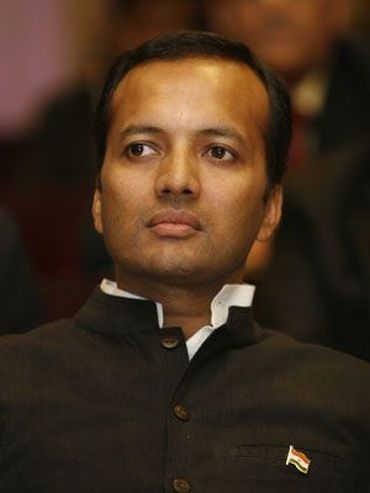
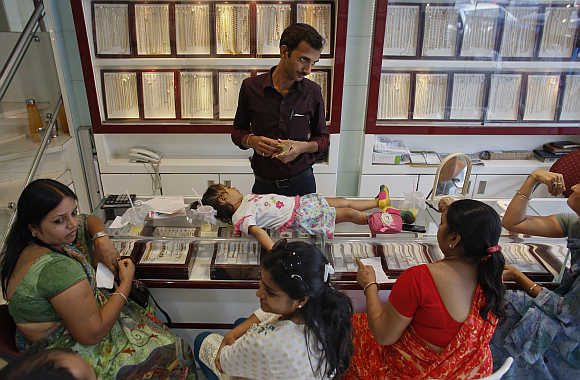
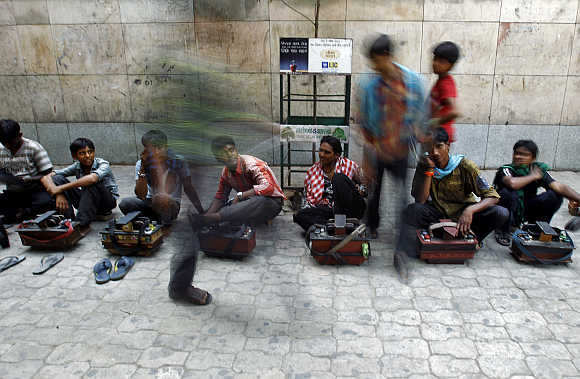
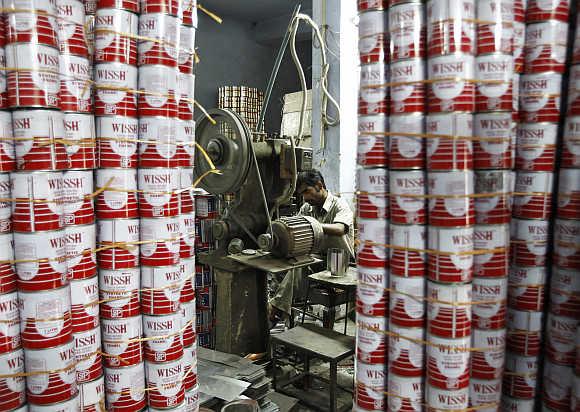
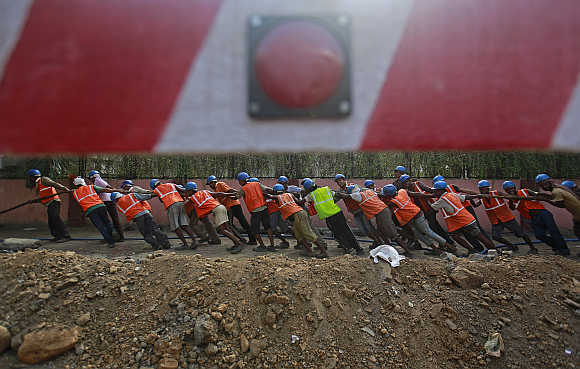

article